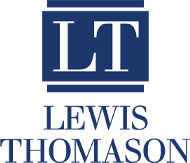Four years ago, 43 school districts formed the Sweetwater Consortium, a group authorized under federal law to bid for internet and technology services that would be paid by E-rate funding through the Wireline Services Bureau of the Federal Communications Commission in Washington, D.C. The Consortium released the bid, evaluated the proposals submitted, and awarded the bid to Education Networks of America, a national leader in technology services for school districts. AT&T, the unsuccessful bidder, filed a bid protest with USAC, the contract review subcontractor of the FCC. An appeal process that usually takes 3-4 months turned into a 4 year battle during which time, the Consortium members received no funding for internet services. Representing the school districts, Chuck Cagle filed the appeal for the Consortium, responses to several requests for additional information and documents, and appeared at three hearings before various FCC Bureaus; the last one of which included individual meetings with the FCC Commissioners and staff members. While all of this was ongoing, the newly formed Shelby County school system also filed and was denied E-rate funding pending the decision in the Sweetwater appeal.
On December 30, 2016 the FCC released its decision on the matter granting the Sweetwater appeal and awarding funding to the Consortium. That decision results in the release of approximately $39 million dollars to the 43 school districts (representing over 330,000 students). In addition, based on the Sweetwater award, the FCC dismissed as moot the appeal for the Shelby County schools with a resulting award of approximately $10 million to that district. Total funding to school systems involved is approximately $50 million.
Congratulations to Chuck Cagle on his victory in this significant case.
 Charles W. (Chuck) Cagle is a shareholder and chair of the Education Law and Government Relations Practice Group for the firm’s Nashville office. He oversees the firm’s representation of over 70 public boards of education, two private schools, two private universities, and a private medical school in a variety of legal matters including employment issues related to both licensed and classified employees, employee and student discipline, employee and student rights, special education and disability accommodation, constitutional rights issues, sexual harassment and bullying issues, civil rights, desegregation, school system consolidation, tort liability, school system business practices, school funding, taxation, and school construction.
Charles W. (Chuck) Cagle is a shareholder and chair of the Education Law and Government Relations Practice Group for the firm’s Nashville office. He oversees the firm’s representation of over 70 public boards of education, two private schools, two private universities, and a private medical school in a variety of legal matters including employment issues related to both licensed and classified employees, employee and student discipline, employee and student rights, special education and disability accommodation, constitutional rights issues, sexual harassment and bullying issues, civil rights, desegregation, school system consolidation, tort liability, school system business practices, school funding, taxation, and school construction.





